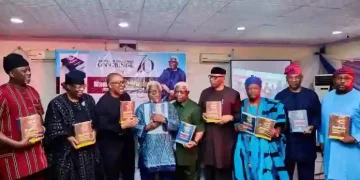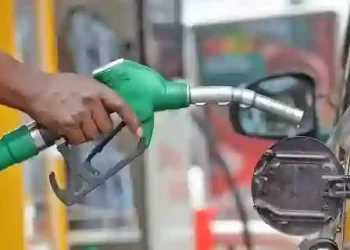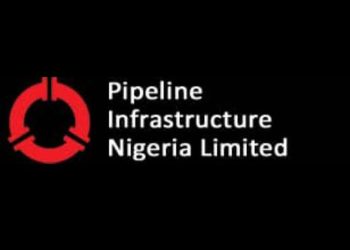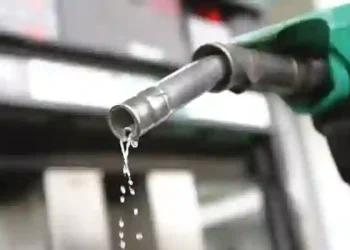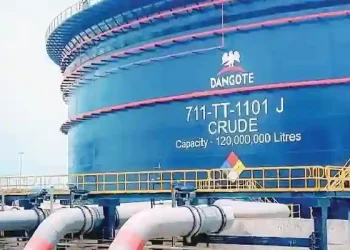The Nigerian Upstream Petroleum Regulatory Commission (NUPRC) has announced a major increase in the nation’s rig count to 69. The announcement reflects renewed activity and investor confidence in Nigeria’s oil and gas sector.
In a press statement issued on Sunday by its head of media and strategic communication, Eniola Akinkuotu, NUPRC revealed that the rig count has increased from 8 in 2021 to 69 as of the 2nd of October, 2025 – a whopping 762.5 per cent rise within 4 years.
The breakdown showed that the present figure is 40 active rigs, 8 on standby, on warm stack, 4 on cold stack, and 12 in transit.
NUPRC stressed that the figures will most likely continue to increase in the near future.
“Billions in divestments:
The Commission approved divestments running into billions of dollars in 2024. From the Nigeria Agip Oil Company (NAOC) to Oando Energy Resources; Equinor to Chappal Energies; Mobil Producing Nigeria Unlimited to Seplat Energies; and Shell Development Company Nigeria Limited to Renaissance Africa Energy.
The divestment is about investor portfolio re-ordering to focus on deep-offshore development.
Developed regulation:
To give meaning to the intent of the PIA, 2021, the Commission, in consultation with stakeholders, has developed 24 forward-thinking Regulations. So far, 19 have been gazetted while 5 await gazetting. These forward-thinking Regulations serve as tools for transparency and the creation of an enabling investment climate and benchmark best practices.
Gas flare commercialisation:
The NUPRC completed awards of flare sites to successful bidders under the Nigerian Gas Flare Commercialisation Programme (NGFCP). The programme is aimed at eliminating gas flaring and attracting at least 2.5 billion dollars in investments.
Overall Best Performing Parastatal – SERVICOM:
In 2024, the Commission secured the 2024 Overall Best Performing Parastatal SERVICOM Unit (PSU) Award, along with the 2024 Best Performing PSU, Team B Award, a testament to the NUPRC’s commitment to customer service. The NUPRC has again won Best Regulator, 2025 by Nigerian Energy Correspondents, aside over 60 awards from various organisations,” a press statement read.
According to the commission, four hundred dormant oil fields across Nigeria were identified thanks to its recent policy review, a discovery that has forced inactive operators to take decisive action.
Eniola Akinkuotu disclosed that the latest development proves increasing investor confidence, emphasising that growth is in line with President Tinubu’s plans to trigger investment in the country’s upstream sector.
NUPRC reiterated its readiness to keep committing to sustaining reforms aimed at taking full advantage of the country’s hydrocarbon potential and driving Nigeria’s energy sector toward sustainable growth.
NUPRC celebrated surpassing its revenue target by 18.3 per cent, 14.65 per cent, and 84.2 per cent in 2022, 2023, and 2024, respectively, amid fluctuations in oil production and prices, thereby positively impacting Nigeria’s economic growth.
Recalling that political influence used to affect the licensing rounds negatively, NUPRC hailed President Tinubu for backing a more transparent and credible digital process.
NUPRC further announced that, in line with the PIA, 2021, and with the support of President Tinubu, it is set to implement the “Drill or Drop” policy that will see unexplored acreages forfeited.
“HCDTs Remits N358.67bn:
Host Community Development Trusts have remitted N122.34bn in naira, while dollar contributions stand at over $168.91m as of October 2025. This translates to a combined remittance of over N358.67bn based on the prevalent exchange rate, in enthroning a conducive host community environment in Nigeria.
Over 536 ongoing community projects:
Still in the host community, the NUPRC is overseeing at least 536 projects at various stages of completion, including schools, health centres, roads, and vocational centres. These are being funded by the trust fund. The achievement has tremendously curbed crude oil theft.
Development Wells Hits 306 between 2022-2025:
As part of its mandate to develop the country’s hydrocarbon, the Commission has recorded 306 development wells drilled and completed between 2022 to date.
Removing hindrances to exploration with 2D and 3D seismic data:
The NUPRC issued Nigeria’s first Petroleum Exploration Licence (PEL) for a large offshore geophysical survey covering 56,000 km² of 3D seismic and gravity data. Furthermore, the Commission has reprocessed 17,000 line-kilometres of 2D seismic data and 28,000 square kilometres of 3D seismic data, producing sharper, higher-resolution images of our petroleum systems and reducing the uncertainties that once hindered exploration decisions.
Other data acquisition includes: 11,300 Sq.km of newly acquired 3D data, processed to PSDM, and 80,000 Sq.km of Multibeam Echo Sounding & Seafloor Geochemical Coring data.
Curbing crude oil theft:
In 2021, the average daily crude oil losses stood at 102,900 barrels per day or 37.6 million barrels per year. However, due to the combined efforts of the General Security Forces and Private Security Contractors (TANTITA) as well as the collaborative effort of the commission, this has been reduced by 90% to specifically 9,600bpd in September 2025.
Furthermore, two pioneer regulations introduced by the Commission have also contributed to the success, namely: The Upstream Measurement Regulation and the Advanced Cargo Declaration Regulation, respectively, have contributed as pioneer efforts at achieving transparency in hydrocarbon accounting.
Leading AFRIPERF:
Even outside the shores of Nigeria, the Engr. Gbenga Komolafe-led NUPRC has continued to show leadership as it championed the establishment of the African Petroleum Regulators Forum (AFRIPERF).
The last event of the AFRIPERF at the Africa Oil Week (AOW) was attended by sixteen African Countries, namely: Nigeria, Ghana, Somalia, Gambia, Madagascar, Sudan, Guinea, Togo, Angola, South Africa, Mozambique, Benin Republic, Kenya, Namibia, Morocco, and Mauritania. AFRIPERF provides regulators with the mechanism to harmonise oil and gas development policies to facilitate cross-border infrastructure development, benchmark fiscals, and present a strong voice for Africa in hydrocarbon advocacy globally,” a press statement read.



